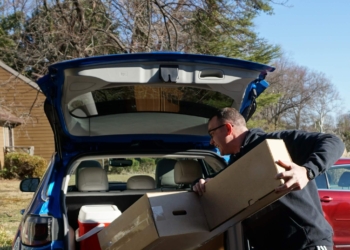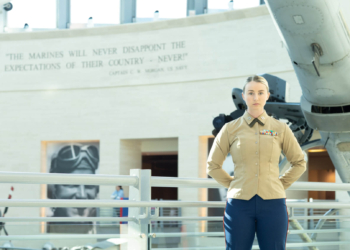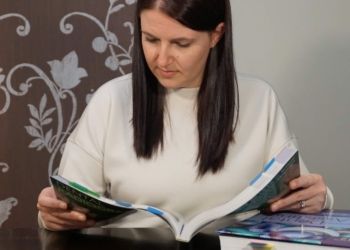
Marine spouse Lori Hensic faced a perfect storm. It included an overseas move coupled with an epic battle to overcome healthcare career hurdles impacting her life’s work. The experience set her on the path to discovering how state issues can affect military spouses. Now, Hensic is urging other spouses to rally together on improving these localized issues one by one.
Hensic, PharmD, PRS, BCACP, and her active duty wife Shaina Turley, were moving from San Diego to Japan on their first PCS as a married couple. Turley was returning from deployment as Hensic was busy trying to sell their house, preparing for the move, and securing employment at their next duty station. As a pharmacist, Hensic thought her biggest challenge would be the limited job opportunities in Japan. It turned out to be much more.
The background
Using her network from previous positions and volunteer work, Hensic discovered that an opening was posted on USAjobs that wasn’t showing up in her search. After applying for and interviewing for a job she was extraordinarily overqualified for, a change in policy left her scrambling for a solution.
“I interviewed on September 25th, and on September 27th, the Office of Personnel Management (OPM) changed the rule to now require a national licensing exam instead of a state license,” she explained. So after applying and interviewing, she was told if she didn’t have this national exam, she would not be able to work.
So she did what any strong military spouse would do — she fought it. With help from her Congresswoman Susan Davies (D-San Diego) and her state legislators, Hensic fought OPM and ultimately won. But in the meantime, also studied for and took this national exam to ensure she was qualified for the job. “We knew that even if they changed this ruling, it could be too late for this particular position,” she explained.
What should have been a nice, post-deployment PCS vacation over the Christmas holiday turned into anything but: a ridiculous amount of studying, a new route from San Diego to Seattle, and a quick stop in Portland to take the licensing exam to receive a license in the Commonwealth of Virginia. Sounds just about typical, right? Looking back, it may be something to laugh about, but not quite yet.
You see Hensic interviewed for this job last September. They moved to Japan in early January. At the time of this interview, she’s still not working.
Career progression
“It’s not just about the money,” she said.“Though I am still paying off student loans and had to pay $1500 for my Virginia license. It’s about staying current in my field.”
Even though some professionals can take three years off from a career then return, it’s not feasible for a pharmacist.
As a military spouse, Hensic is not satisfied just knowing that she got this job. She’s not happy to merely talk about the struggles others are facing with employment. She’s ready to do something about it by educating and mentoring spouses who are struggling with transferring licenses.
“The spouses of the military community do seem to have a special spark about them, a persistence, an entrepreneurial spirit. And this spirit is contagious. It has encouraged me to explore creative options and solutions when I experience a barrier in maintaining my career trajectory,” she said.
Hensic wants military spouses to know that they can fight these battles. “We cannot rely on a national organization to fight all these battles,” she said. “These are state issues, and we need to fight each one as it comes up.”
“Over the years, I have been engaged in a number of military spouse networks and have heard stories of what has worked for other spouses — and what hasn’t,” says Hensic. “I truly believe that learning from this internal network, even more so than from the external network, has enhanced my ability to be nimble and flexible in a life that is extremely dynamic and largely out of my control. It’s like having thousands of mentors at your fingertips.”
Read comments






































